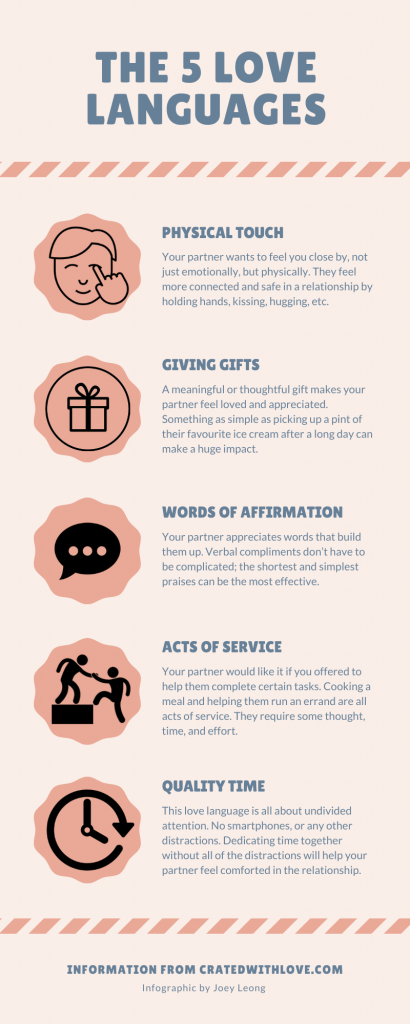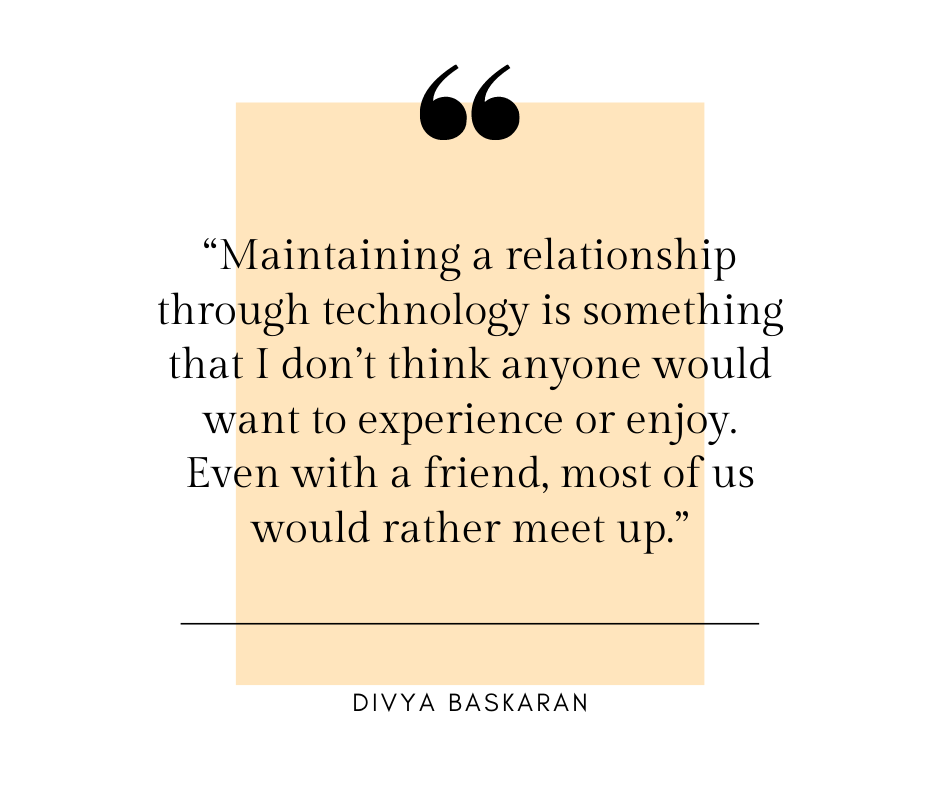Divya Baskaran started dating her ex-boyfriend in 2018. The young couple always made time to meet regularly despite their busy schedules. But when the circuit breaker movement curb was introduced in April, they started experiencing a “major loss of communication”.
For slightly over two months, couples living in different households were not able to meet each other in the flesh. While some couples managed to survive the circuit breaker, others like Divya and her ex went separate ways instead.

Photo Credit: Joey Leong
When all of Divya’s classes shifted online, the undergraduate said she had her hands full trying to cope with her academic load. Her ex-boyfriend also had to adapt to working from home. It was a stressful period for both.
“We went from constantly texting and calling like we couldn’t get off our phones to suddenly dropping a couple of messages here and there to none at all,” says Divya.
The couple quickly realised that their romance couldn’t survive with no physical interaction.
“His love language is physical touch,” says Divya. “So I guess it was more difficult for him to not meet up than it was for me.”

The Five Love Languages Quiz to find out how you express love and how you’d like to receive love.
Infographic Credit: Joey Leong
Cheating
Things took a turn for the worse when her ex-boyfriend asked to meet her during the circuit breaker.
She refused. “I didn’t want to make that selfish decision and put anyone at risk just because I wanted to meet my boyfriend. We weren’t supposed to meet each other.”
Divya later found out that he started talking to other girls online and even met them in person. That’s when she decided to call it quits in May.
“My ex-boyfriend took the easy way out, you know. The stupid way. Just that instead of breaking up, he did it the cheating way.”
“The episode made me grow as a person. It made me realise what I want and what I don’t want in a relationship in the future,” says Divya.

Fatigue
Koh Horng An, 19, got together with his ex-girlfriend at the start of the circuit breaker in April. Two months into their relationship, the polytechnic student said he started feeling the fatigue of having to maintain their romance online.
His ex often initiated video calls, but he “hates” video calls.
“I guess it really started off with me being tired of hanging out or video calling her, before I started getting into this unhealthy vicious circle of running away from the problem, giving excuses about why I can’t meet today, too tired from schoolwork and all,” says Horng An. “I basically didn’t wanna try for her anymore.”
It didn’t help that he was also struggling to cope with home-based learning during the circuit breaker.
“I was unable to follow up in classes and assignments. It made me lose motivation towards my studies and life in general,” he says.
He also realised that he had no one to turn to for help in school. “It then dawned on me that I had little to no close genuine connections with people in [my course].”
Horng An began to take it out on his ex-girlfriend by stubbornly trying to have his way during their increasingly frequent arguments.
“It was always about winning the argument – it made me feel worthy and good about myself, because I was able to bring her over to what I felt was my better point of view on things,” he says.
Looking back, he realised that he’s been selfish. “The circuit breaker put a lot of stress on me, which really brought the ‘demons’ out of me,” confesses Horng An. “I realised that I was a lot more selfish than I thought; I was thinking more about me than her.
Differing Expectations
For 22-year-old polytechnic student Inez Low, the red flags in her relationship were there from the start. The circuit breaker just made them more apparent.
Looking back, Inez said she and her ex-boyfriend were as different as night and day. She considers herself a rational and pragmatic person. Her boyfriend, however, has a different value system.
“He’s an idealistic individual who’s quite immature,” she says. “He believes that money cannot buy one’s happiness while I believe money is a necessity in life.”
“Another [difference is] he usually waits around for opportunities to go to him while I believe we should fight for opportunities.”
During the circuit breaker, Inez was juggling home-based learning while working part-time at an ice cream shop. Her ex-boyfriend, on the other hand, had more free time as his co-curricular activity was suspended. He also didn’t see the need to work part-time.
“I’m not as free as he is,” Inez says. “For some reason, he just can’t accept it. He thinks I have to be as free as he is and I have to dedicate all that time to him because he’s free.”
“He called me materialistic because I was still working, when in fact, I just wanted to gain some financial independence,” adds Inez. “That was the most offensive thing I have ever heard. He went on to say I would do anything for money.”
In a way, she said the circuit breaker fast-tracked her decision to break up with him.
“I realise that [a relationship] is not something I like at this point in time because I really place a lot more priority on personal growth now. I feel that he’s a hindrance to it.”
“You shouldn’t compromise on your personal growth for somebody else,” she says.
